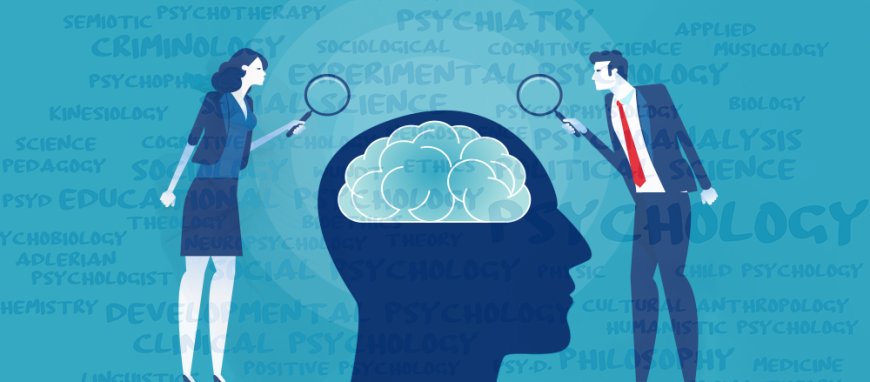The True Goals of Psychotherapy: Healing the Mind, Empowering the Self
Discover the true goals of psychotherapy—healing the mind, improving well-being, and empowering the self for a healthier, balanced life.

Introduction
Have you ever wondered what therapy is really about? Sure, we hear terms like “mental health” or “self-care” all the time, but what does psychotherapy actually aim to do? It’s not just about talking—it’s about healing, growing, and finding your inner strength. Psychotherapy is like a journey through the mind, where you explore, heal, and come out stronger on the other side.
In this article, we’re going to unpack the true goals of psychotherapy in a simple, down-to-earth way. Whether you're considering therapy or just curious, you'll walk away with a clearer picture of what it can truly offer.
Understanding Psychotherapy
Psychotherapy—also called talk therapy—is a process where a trained therapist helps you understand your thoughts, feelings, and behaviors. Think of it like having a guide on a hike through your inner world. Sometimes the terrain is rocky, sometimes it’s peaceful, but you’re not walking it alone.
Why People Seek Therapy
People turn to therapy for all kinds of reasons—stress, anxiety, relationship issues, trauma, or just a general sense of feeling "off." You don’t have to be in crisis to benefit. Therapy isn’t only for when things fall apart; it’s also about building a stronger foundation for life.
Core Goals of Psychotherapy
Let’s get to the heart of it. The goals of psychotherapy often boil down to three main things:
-
Healing the mind from past trauma and emotional pain
-
Empowering the self to take control of your life
-
Improving mental and emotional well-being
Each person’s journey is different, but these goals help steer the process, making therapy both personal and purposeful.
Healing Emotional Wounds
We all carry emotional scars—some visible, some hidden. Therapy helps bring those wounds into the light, so they can begin to heal. Like cleaning out a cut before it can close, you need to address your pain, not bury it.
A therapist helps you face those painful experiences in a safe, controlled environment. This step is crucial for long-term healing.
Improving Self-Awareness
Have you ever acted a certain way and later wondered, “Why did I do that?” Therapy shines a light on the “why.” By becoming more aware of your thoughts and behaviors, you gain better control over them.
This increased self-awareness is like learning how to drive your own car instead of letting it steer itself on autopilot.
Managing Mental Health Conditions
Therapy plays a huge role in treating conditions like depression, anxiety, PTSD, and OCD, among others. It’s not a magic cure, but it equips you with tools and insights to manage symptoms and improve your quality of life.
And often, psychotherapy works hand-in-hand with medication, not against it.
Building Healthier Relationships
Whether it's a partner, parent, friend, or coworker—our relationships deeply impact our lives. Therapy helps you understand your relationship patterns and teaches you how to communicate better, set boundaries, and build healthier connections.
Because when you understand yourself better, you understand others better too.
Developing Coping Strategies
Life throws curveballs. Stress, loss, change—they're all part of the ride. Psychotherapy gives you practical tools to cope with these challenges. Think of it as a mental toolbox—full of strategies to help you stay calm, clear-headed, and resilient.
Instead of reacting impulsively, you learn to respond thoughtfully.
Boosting Self-Esteem and Confidence
Many of us struggle with self-doubt and inner criticism. A therapist can help you change the way you see yourself. Through compassion, reflection, and gentle challenge, therapy helps replace negative self-talk with a kinder, more realistic voice.
You begin to realize: you are enough.
Encouraging Personal Growth
Therapy isn’t just for solving problems—it’s also about growth. It encourages you to explore who you are, what matters to you, and what kind of life you want to live. You don’t just heal in therapy—you evolve.
Think of it as planting seeds for a better version of yourself.
Breaking Harmful Patterns
Ever notice yourself stuck in the same toxic loop? Same arguments, same mistakes? Therapy helps identify these cycles and guides you toward breaking them. It’s like hitting pause and choosing a new path, one that leads to healthier behavior and better outcomes.
Patterns can be broken—and therapy shows you how.
Creating a Safe Space for Expression
In a world where everyone’s rushing, judging, or distracted, therapy offers something rare: a space to just be. You can talk openly without fear of criticism. That sense of safety alone can be incredibly healing.
Sometimes, being heard is half the healing.
Measuring Progress in Therapy
Therapy isn’t always a straight line. Some weeks you’ll feel on top of the world, other times it’ll feel like you’re stuck. That’s normal. Progress often looks like subtle changes—better reactions, more clarity, fewer breakdowns.
Your therapist will help track that growth, so you can see how far you’ve come.
Long-Term Benefits of Therapy
The benefits of psychotherapy often extend well beyond the therapy room:
-
Better emotional regulation
-
Improved decision-making
-
Stronger relationships
-
Greater life satisfaction
Think of therapy like tending a garden. The more you work at it, the more it blooms—even years later.
When to Consider Psychotherapy
Wondering if therapy is for you? Ask yourself:
-
Do I feel stuck or overwhelmed?
-
Am I struggling with anxiety, sadness, or anger?
-
Are my relationships suffering?
-
Do I want to understand myself better?
If you answered yes to any of these, therapy might be a helpful step.
Conclusion
Psychotherapy is much more than just “talking about your problems.” It’s a powerful, supportive process that helps heal emotional wounds, build self-awareness, and empower you to live a more authentic, fulfilling life. Whether you’re hurting, curious, or simply seeking growth, therapy meets you where you are—and helps guide you to where you want to be.
At its core, the goals of psychotherapy are simple but profound: to heal the mind and empower the self.
FAQs
1. What are the main goals of psychotherapy?
The main goals of psychotherapy are to heal emotional pain, build self-awareness, manage mental health issues, and support personal growth.
2. How long does psychotherapy usually take?
It varies. Some people benefit in just a few months, while others engage in therapy for years. It depends on the person’s goals and issues.
3. Do I need to have a mental illness to go to therapy?
Not at all. Many people use therapy for self-discovery, stress management, or improving relationships, even without a diagnosis.
4. Can psychotherapy really change how I think and feel?
Yes. With time and effort, therapy can reshape thought patterns, improve emotional responses, and lead to lasting behavioral changes.
5. What should I look for in a good therapist?
Look for someone licensed, experienced, and with whom you feel comfortable. The right fit can make all the difference in your therapy journey.





























































































































































